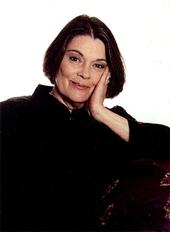Rosemary Woodruff Leary -- Psychedelic Pioneer
By Martina Hoffmann with Friends of Rosemary Woodruff Leary
One of the great female Psychedelic Pioneers, Rosemary Woodruff Leary, died on February 7, 2002, at her home in Aptos, California. She was sixty-six years old. Born in St. Louis, Missouri on April 26, 1935 into a conservative Baptist environment, Ro, as she was known to her friends, began her psychedelic journey long before her relationship with Dr. Timothy Leary. In the fifties, as one of the early seekers who prefigured America's emerging counter-culture, she escaped to New York City at a tender age where she became part of the city's most progressive music (jazz), art and literary (Beat) circles and experimented with psilocybin mushrooms and peyote. From here the course of events brought her to eventually become the 'accomplice' of the "most dangerous man in America".
The sheer number of psychedelic luminaries present at her memorial, held on April 20 in Santa Cruz, gave testimony to the fundamental role she played during the psychedelic revolution and beyond. Amongst them were Ralph Metzner, Frank Barron, Peggy Hitchcock, Robert Anton Wilson, Michael and Cindy Horowitz, Chet Helms and many others, including Ram Dass who was at her hospital bed.
In the 50s and early 60s era, because of the pervasive sexism which obscured women's intellectual contributions, women rebels were viewed mostly as being muses to their male counterparts. Rosemary Leary soon transcended this role by becoming Timothy Leary's partner in creating the setting which shaped LSD experimentation in its formative years. As he describes in Flashbacks: "Rosemary and I shared the work too. I was finishing the work of psychedelic poetry based on the Tao Te Ching. Rosemary edited the manuscript. She joined....me in preparing the slide shows and tapes we used in our weekend workshops in various cities around the East Coast. We tried to stimulate LSD experiences with sounds, strobes and slides, as Ralph, Michael and I alternated murmured narration and Yogic instructions while Rosemary whispered philosophic poetry, hour upon hour, recapitulating the evolution of the species, taking our astounded participants up the chakras of their bodies." (Flashbacks, pp. 232-3.)
Her greatest contribution to the psychedelic movement was surely her consistent refusal to cooperate with Federal Authorities. She received thirty days of solitary confinement for not testifying against Leary after G. Gordon Liddy busted Millbrook in 1966. Then she proceeded to orchestrate Leary's escape from prison in 1970 with the aid of the Weather Underground and planned for their subsequent escape to Algeria. Most critically, that same year she refused an offer of amnesty from the FBI in exchange for providing names of others who had committed illegal acts in the name of freedom of consciousness. This selfless show of bravery was to define the course of her life.
In her own words: "After escaping from Algeria, and suffering through yet another arrest and release in Switzerland, I left Leary, searching for a country that would allow me to find some peace and sanity. What followed were years of adventure and fear in some very far-flung places. I lived underground as a fugitive for twenty-four years in Europe and the Americas, long after Leary was captured again and eventually released from the US prison system." Because of Rosemary Leary, many founding members of the psychedelic movement lived out their lives in freedom rather than jail cells. She paid a high price for the freedom of others: not until 1995 could she say, "I have regained my freedom and I am free again to write." But she paid this price willingly because of what psychedelics had taught her: that there are truths more fundamental and significant than the laws of men intoxicated with power.
